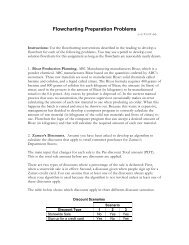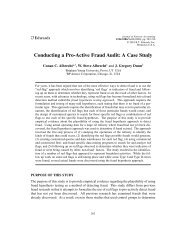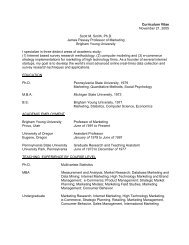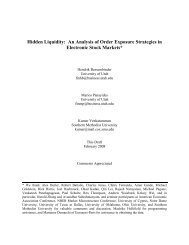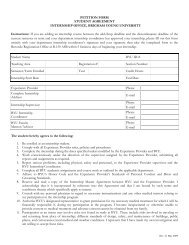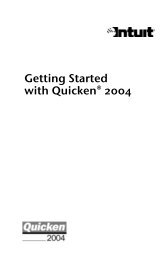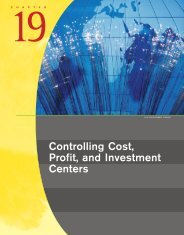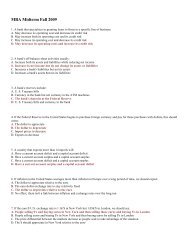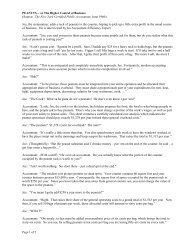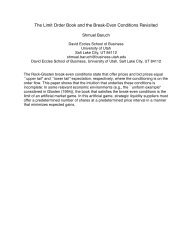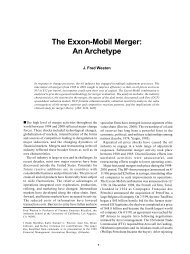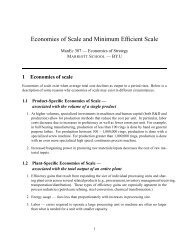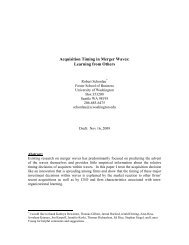why do firms go public? - Marriott School
why do firms go public? - Marriott School
why do firms go public? - Marriott School
Create successful ePaper yourself
Turn your PDF publications into a flip-book with our unique Google optimized e-Paper software.
In contrast to the preceding research, Schiozer, Oliveira, and Saito (2010) show for<br />
Brazilian IPOs from 2005-2007, the decision to <strong>go</strong> <strong>public</strong> cannot be explained by a markettiming<br />
function. Instead, Schiozer et al. show that greater growth opportunities (relative to<br />
competitors) drives the decision to <strong>go</strong> <strong>public</strong>.<br />
Having discussed the win<strong>do</strong>ws hypothesis, it is important to note that it should actually<br />
be viewed, at least partly, as a timing issue, not a motive issue. Suppose entrepreneurs see the<br />
frothy market and they feel it is a great time to issue, so they <strong>do</strong>. Did they issue then so they<br />
would have overpriced equity to fuel growth Did they issue then because the overpriced equity<br />
decreased their WACC Did they issue then because they could cash-out amid the market frenzy<br />
and become deca-millionaires Because the win<strong>do</strong>ws hypothesis can be thought of as a timing<br />
issue, Brau and Fawcett (2006a) includes the market timing question in the timing survey section<br />
and not the motive section. The responding CFOs’ top two reasons for the timing of their IPOs<br />
supports the win<strong>do</strong>ws hypothesis, with 83% agreeing “overall market conditions” were a factor<br />
in the timing and 70% agreeing “industry conditions” were a timing factor.<br />
Create shares for compensation<br />
Holmstrom and Tirole (1993) and Schipper and Smith (1986) argue that <strong>public</strong>ly traded<br />
stock allows for efficient compensation programs. This hypothesis suggests that <strong>firms</strong> will offer<br />
more stock-based compensation schemes after the IPO. Because pre-IPO compensation data is<br />
very difficult to come by, the direct test of this hypothesis with non-survey data is nearly<br />
impossible. However, Graham and Harvey (2001) ask if issuing equity is motivated for providing<br />
shares to employee bonus/stock option plans in their survey, covered subsequently.<br />
Because other <strong>firms</strong> in the same industry have <strong>go</strong>ne/Are <strong>go</strong>ing <strong>public</strong><br />
17



